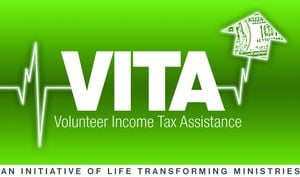The German Federal Election of 2025 is poised to reshape not only the political structure of the country but also the coalition dynamics as parties prepare to vie for power. Scheduled against the backdrop of political turbulence following the collapse of the previous government, this election will significantly influence Germany's path moving forward.
Recent polls indicate shifting tides among parties, particularly for smaller groups like the FDP (Free Democratic Party), Linke (Left Party), and BSW (Bündnis Sahra Wagenknecht), who are seen as key players, especially for their potential to act as the decisive votes needed to tip the scales of coalition formation. According to Roland Abold from the polling institute, "Es reicht es nach jetzigem Stand für eine Zweier-Koalition," which translates to "At the current rate, it suffices for a two-party coalition," underscoring the precarious nature of the upcoming negotiations.
Friedrich Merz, the candidate for the governing coalition from CDU (Christian Democratic Union)/CSU (Christian Social Union), has ruled out any collaboration with the AfD (Alternative for Germany), stating emphatically, "Wir werden mit niemandem... Gespräche, geschweige denn Verhandlungen oder gar Regierungsbeteiligungen mit der AfD besprechen. Das kommt nicht infrage." This statement makes it clear: alliances will be carefully strategized among parties with aligned visions and policies.
The dynamics of coalition-making are complicated by the newly implemented electoral laws, which mandate parties to meet the five-percent threshold or win at least three direct mandates to secure seats. This change could result in significant shifts within the Bundestag, as highlighted during the election spirit sweeping through places like Schleswig-Holstein, where voting began under gray skies but accompanied by community engagement and determination. Voter engagement remains high with encouraging statements, such as those from President Frank-Walter Steinmeier, who prompted citizens by stating, "Nutzen Sie Ihr Wahlrecht, gehen Sie wählen, bestimmen Sie mit über die Zukunft unseres Landes..." encouraging participation and ownership of their democratic rights.
Schleswig-Holstein epitomizes the diverse coalition possibilities at play, with its thirteen parties competing for votes; greater participation by smaller parties would complicate the path to forming larger coalitions. Should the FDP, Linke, and BSW succeed, the balance of power would shift and may edge the larger groups like SPD (Social Democrats) and CDU/CSU to reconsider their positions. A potential scenario could see the formation of the traditional Schwarz-Rot (Black-Red) or even Schwarz-Grün (Black-Green) coalitions; though the latter remains tenuous, especially with comments from CSU chief Markus Söder unequivocally refusing the possibility of working with the Greens.
If smaller parties fail to clear the five-percent barrier, the political climate may see less contention, making it straightforward for larger groups to negotiate their terms and form stable governance. For example, if all three smaller parties stumble, CDU and SPD could form exclusive partnerships, easily managing the votes necessary for governing majorities.
Effective administration of the election, involving about 60 million eligible voters across over 65,000 polling places, requires significant logistical arrangements. The recent changes also mean not every winner of the first-past-the-post constituency model automatically enters the Bundestag, intensifying the significance of the second votes—or the proportional vote—which serve as the bedrock for distributed representation. Notably, the number of parliamentary seats is being reduced from 736 to 630, thereby intensifying the competition and importance of each vote.
With everything on the line—ranging from public services to international policy directions—the stakes could not be higher. Observers are eagerly anticipating the official outcome and its immediate implications for the political future of Germany: Could Olaf Scholz continue as Chancellor if the numbers are favorable? Could coalition negotiations spiral out of control amid crowding both politically and ideologically?
Only time will tell as polls close and results emerge. The election day may be under the lens of uncertainty and fluctuated results, but it is also infused with hope and active civic participation.



